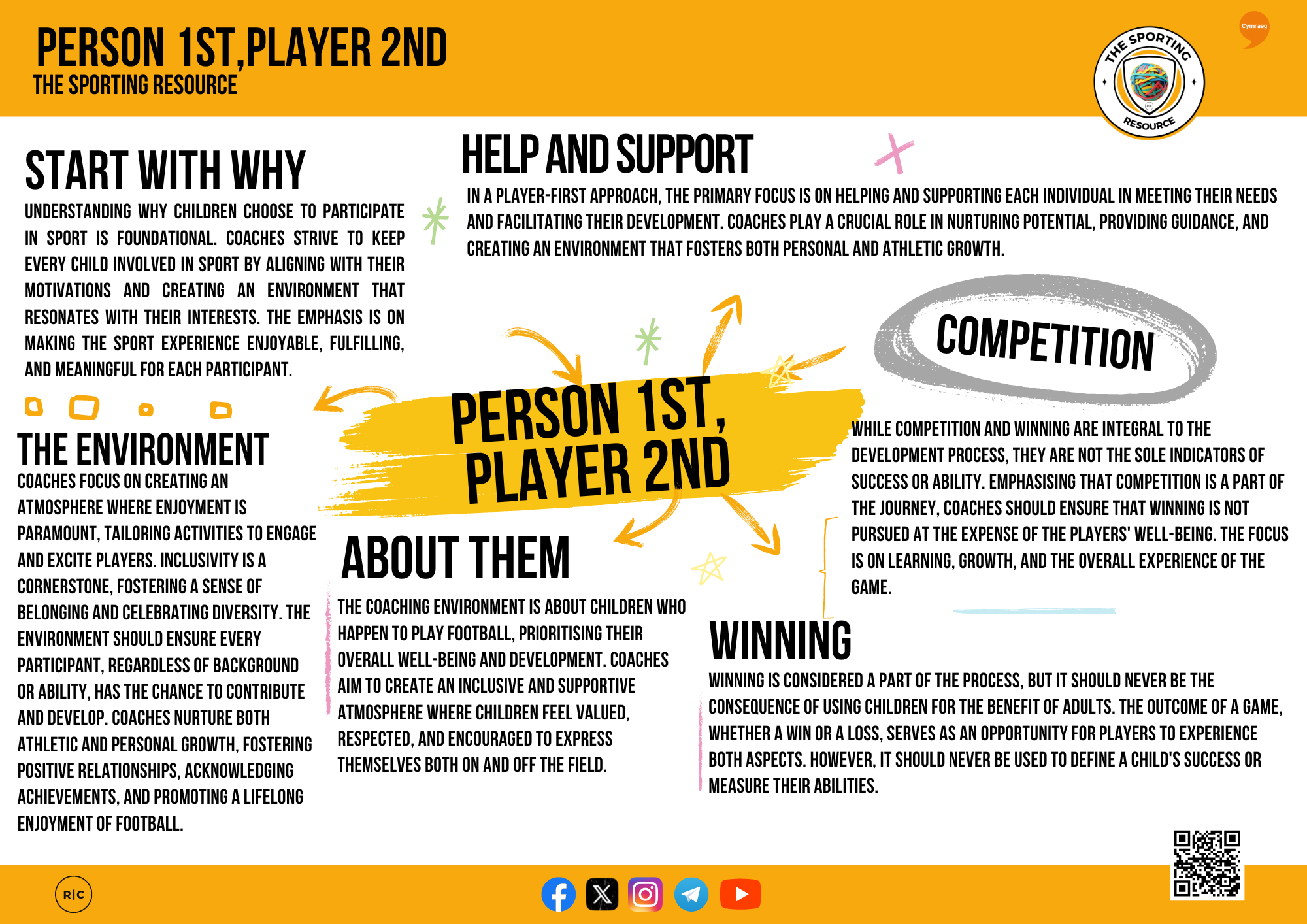The Objective of Youth Sport
We are all too aware, as adults, of the huge demand to succeed in the world of professional sports. The desire to succeed, to achieve results, and to reap the rewards of success can be overwhelming. Unfortunately, these same pressures are penetrating youth sports, influencing how young players approach their games, behave on and off the field, and develop their attitudes towards competition. Unfortunately, many young players are now subjected to the same intense competitive pressure as their adult counterparts. They are driven to perform at their maximum, to be the best, and to win at all costs. This type of pressure can detract from the enjoyment of sports and make them less engaging for children.
It’s unfortunate, but often, the fundamental principles behind youth sports are not upheld in reality. Instead, they are overshadowed by an overemotional and well-intentioned desire to achieve success through victories, records, and trophies as a form of materialistic measure.
This approach takes away from the true essence of youth sports, which should be about learning, growth, and personal development. The pressure to win at all costs can be detrimental to young athletes, causing them to lose sight of the joy and passion they once had for the game. That’s why it’s so important that we advocate for a child-centred approach to youth sports. We must make sure that every sports environment is inclusive and enjoyable, and that children are being taught important lessons about both sports and life.
Before we go further, we’re not for one minute stating we should avoid attempting to win games, as sports require us to be competitive, learn and have fun. We as coaches and educators have the responsibility, to understand and have a perspective regarding the age group that we coach.
At the heart of this child-centred approach is the idea that youth sports should be about having fun, developing skills, and building confidence. It’s not just about winning at all costs. Children should be encouraged to play for the love of the game, to challenge themselves and to grow as individuals.
It’s crucial to stress that every child should have the right to participate in sports. We can all relate to families who struggle to commit to a sport due to financial difficulties, transportation issues, or other family responsibilities. However, the even more significant challenge is denying a child the right to play simply because they are perceived as “not good enough” or “released” without proper support during this transitional period or through such a development journey.
To promote inclusivity in youth sports, we must strive to create an environment where all children feel welcome and supported. This includes providing access to transportation, financial assistance, and support for families who may be facing difficulties. It also means providing adequate support and resources for children who may be struggling with their performance or are going through a transitional period.
Participation in sports serves as a vital platform for young individuals to improve their physical health through exercise. But it goes beyond just physical benefits, as it also plays a significant role in their psychological and social development. Through continued participation in sports, young individuals can develop a range of essential skills, including leadership, self-discipline, respect for authority, competitiveness, cooperativeness, sportsmanship, and self-confidence. These skills are not only valuable in sports but also in other areas of life, preparing them for success in their future endeavours.
Imagine if we treated our colleagues or employees the same way we treat young children involved in youth sports. Would we expect them to show up to work every day if they were being screamed at and cursed out regularly? Of course not! It's time we start treating young children involved in youth sports, regardless of their role, with the same respect and dignity that we would expect for ourselves. Let's create an environment where they can learn and grow without fear of abuse or intimidation from the sidelines.
Parents play a critical role in the growth and development of their children, especially when it comes to their experiences in a sporting environment. With such a significant level of influence, parents can use sports as a tool to bring families closer together, improve the health and well-being of each child, and foster a sense of community with other families. Sports provide a unique opportunity for families to come together, support their children, and build meaningful relationships with others. By participating in sports, children can improve their physical and mental health, while parents can enjoy the social benefits of being involved in their child’s athletic pursuits.
The Objective of Youth Sport
Youth sports offer children the chance to strive towards their potential, navigate challenges, and grow as individuals. However, the pursuit of success can sometimes overshadow the true value of participating in sports.
For some, success is defined as “winning at all costs,” which can lead to an accumulation of pressures and a focus on personal fulfilment through victories, records, trophies, and pleasing others. While this approach may yield immediate results, it ignores the invaluable developmental benefits of participating in sports, both in the short and long term.
The journey of youth sports is full of unexpected twists and turns, and children have the opportunity to develop resilience, leadership skills, self-discipline, respect, competitiveness, cooperation, sportsmanship, and self-confidence through continued participation. These skills and qualities are not only valuable in sports but also in life in general.
As coaches take on a new team or approach a new season, it’s crucial that they prioritise parental involvement and adopt a long-term development perspective for each player and the team as a whole. Effective collaboration between coaches and parents is key to enhancing a child’s learning and providing a positive sporting experience for all.
Research suggests that open communication and ongoing discussions between coaches and parents can help to clarify coaching methods and plans, and highlight their potential benefits both in the short and long term. By fostering a collaborative relationship with parents, coaches can ensure that all parties are working together towards a common goal and creating a supportive environment for the children involved
While coaches should approach discussions with parents, peers, and organisations carefully and thoughtfully, they may need to prove the benefits of their methods and approaches to gain buy-in from all stakeholders. Professor Robyn Jones emphasises that parental involvement plays a significant role in a child’s level of enjoyment and participation in sports, making it crucial for coaches to monitor and manage these relationships.
To ensure that the sporting success and enjoyment of children are not impacted, coaches must work to create a better understanding between all parties involved. By doing so, they can foster a supportive environment for the children and help them to reach their full potential.
One of the main reasons that children do not enjoy participating in sports is because some adults, such as coaches and parents, create an environment that resembles adult professional sports. This is often due to adults behaving overly emotionally and impatiently, as they may not be able to understand the situation from the child's perspective. Unfortunately, this leads to increased frustration and unnecessary vocalization on the part of the adults.
The main objective of youth sports is to provide children with a fun and educational experience of playing sports. It is not equivalent to professional sports, which are driven by entertainment and financial gain, and often rely on the uncertain outcomes of individual and team performance. When the primary focus in youth sports becomes winning as the ultimate measure of success, the needs and interests of young participants can be overlooked. While competition and the ability to overcome challenges are important aspects of sports, the outcome should not be the sole indicator of success.
Coaches and parents who read this should be aware that sport is often associated with success in terms of wins and losses, and if the focus on winning is diminished, players may lose motivation. While the concept of sport involves winning and losing, we should not judge individuals and teams solely based on their records, especially in youth sports. Coaches should work with parents to create a player-focused learning environment that prioritises skill development, personal and team growth, effort, enjoyment, and competitiveness. These elements should be emphasised as markers of success, rather than solely relying on the outcome.
As a coach, I always emphasise to the players to focus on what they can control, such as their level of dedication and effort, instead of trying to control things that are out of their hands, like the outcome of the game. They should strive for both personal and team goals while playing competitively and trying to win, but the final outcome should not be the sole indicator of their success. The significance of the outcome can vary depending on the age group of the players being coached.
Therefore, parents may begin to question, why young players participate and compete in sports. It’s important that we simply ask the children
You could utilise the ‘100 Point Exercise’ activity to gain further insight into why your child commits to a sport?
Below was a research was conducted to explore the goals and aspirations of young athletes in sports participation:
A survey carried out by Amanda Vick in 2014 at George Washington University sought to understand the motivations behind young players participating in sports. When asked why they played, 9 out of 10 respondents answered that they did so primarily because it was enjoyable. This highlights the importance of ensuring that young players have a fun experience, as lack of enjoyment can lead to disengagement and quitting, regardless of their talent or the quality of their coach or team.
Coaches should work together with parents to establish a learning environment focused on the development of each player, including the improvement of skills, personal and team success, all-out effort, and enjoyment of the sport. By prioritising these elements, the competition aspect of the sport can be emphasised while also promoting lifelong involvement. It is crucial for coaches and parents to take into account this information when watching their children participate in youth sports. In accordance with the concept of the “Athletic Triangle”, it’s essential to collaborate with both parents and players to set achievable goals in the sports setting.
Professional sports' emphasis on success is now infiltrating youth sports, putting young players under intense competitive pressure. This approach detracts from the true essence of youth sports, which should focus on learning, growth, and personal development. To promote inclusivity in youth sports, it's important to adopt a child-centred approach, where children are encouraged to play for the love of the game and develop essential skills. Participation in sports serves as a vital platform for young individuals to improve their physical and mental health, as well as develop essential social skills. Parents play a crucial role in their children's experiences in a sporting environment, and effective collaboration between coaches and parents is key to providing a positive sporting experience for all. It's crucial to remember that youth sports should be enjoyable, and success is not just defined by winning at all costs but also by personal growth and development.













